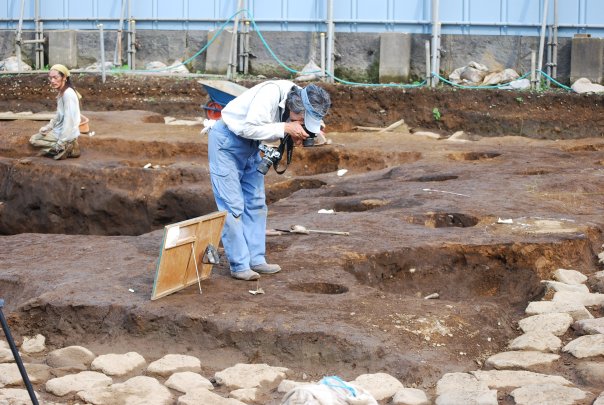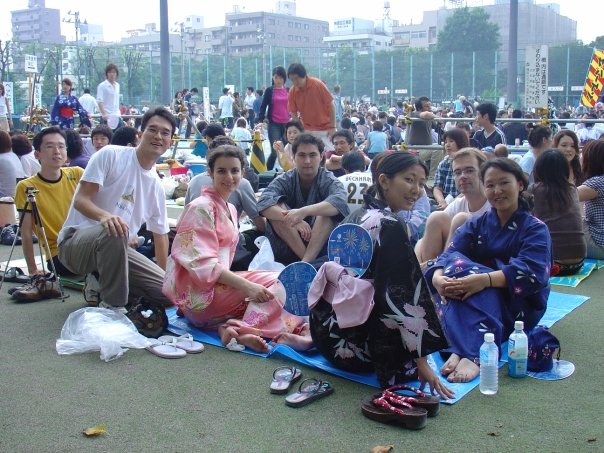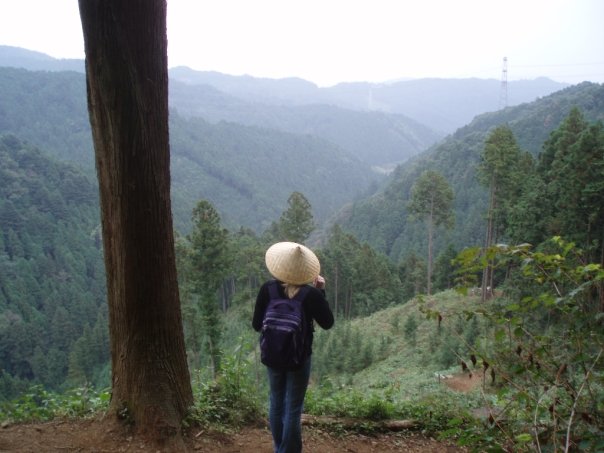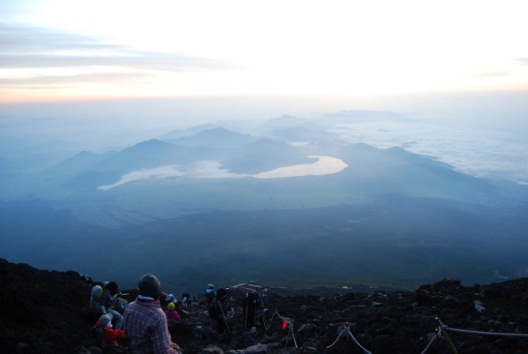| |
Οι εμπειρίες της κ. Γιαννακοπούλου |
|
| |
| Digging into the past and present of Japan |
Dr. Parthenia Giannakopoulou
PhD in Biological Anthropology
|
 In 2006 I was awarded with the MEXT Scholarship to complete my doctoral studies in the field of Biological Anthropology focusing on palaeoepidemiology and the health conditions of historical Japanese populations. During the first year of my stay in Tokyo I was research student at Tokyo University and immediately after that I entered the PhD course at SOKENDAI and conducted research at the National Museum of Nature and Science in Tokyo. My arrival in Japan initiated a long period of unique experiences- some good, others more difficult- which however, gave me the opportunity to appreciate the depth of the Japanese character and culture, forging strong ties with the country and its people until today. |

And there I was, landing in Tokyo, during the cherry blossom season of 2006. The trip had begun and I had the impression that the two years of Japanese language I attended in Greece were sufficient for the first contact with the people and would get me through the basic daily necessities; I could not be more wrong. I still remember the day I was rushing to the university campus from the dormitory trying to figure out how many metro lines I had to change during a 45-minute distance there. Kanji were everywhere, the majority of people could not speak English, and my clumsy intermediate Japanese was not making the conversation with passers-by easier. Despite the language gap however, I managed to get there on time, thanks to the kind efforts of other passengers.
|

During the first six months of the arrival, as all MEXT students, I had to attend intensive Japanese language classes to help me adapt more efficiently to the Japanese society. The classes were conducted at Tokyo University and were very well organized. Although quite difficult at the beginning, since all classes were in Japanese only, they were very helpful and speeded up my speaking capacity. I would strongly encourage all students who are interested in applying for universities in Japan, to reach an intermediate level before arrival, as this will help them enormously in their daily interactions and would keep them away from possible frustrations.
|

The monthly allowance provided by MEXT was quite sufficient during the first two years while living at the dormitories. Following that period and due to the fact that the expenses are bound to rise substantially, as you will be living in your own apartment, a part time job would be necessary for people heading out to Tokyo.
I cannot stress enough how important it is to keep a good relationship with your potential supervisor. Japan is a country with culture and customs, very different from your own and sometimes could even be incomprehensible. The supervisor is there not only to help you and guide you through research, but to also help you understand, as much as possible, the Japanese society and way of thinking. He will be the guarantor for your apartment, once you move out of the dorms, the person to help you connect with other researchers in your field, the one who will be responsible for you and your actions throughout your period of stay in Japan.
|

Japan could become a door to realise your dreams and aspirations. A country full of contrasts, of fascinating culture and history, of immense opportunities to meet and work with interesting people, conduct unique research and build strong and life lasting relationships and collaborations. There will be hard times and good times, but that is the beauty of it all and this is that makes it more rewarding and memorable.
|
Dr. Parthenia Giannakopoulou
PhD in Biological Anthropology
Department for Evolutionary Studies of Biosystems
The Graduate University for Advanced Studies (SOKENDAI)
|
|
|
|
